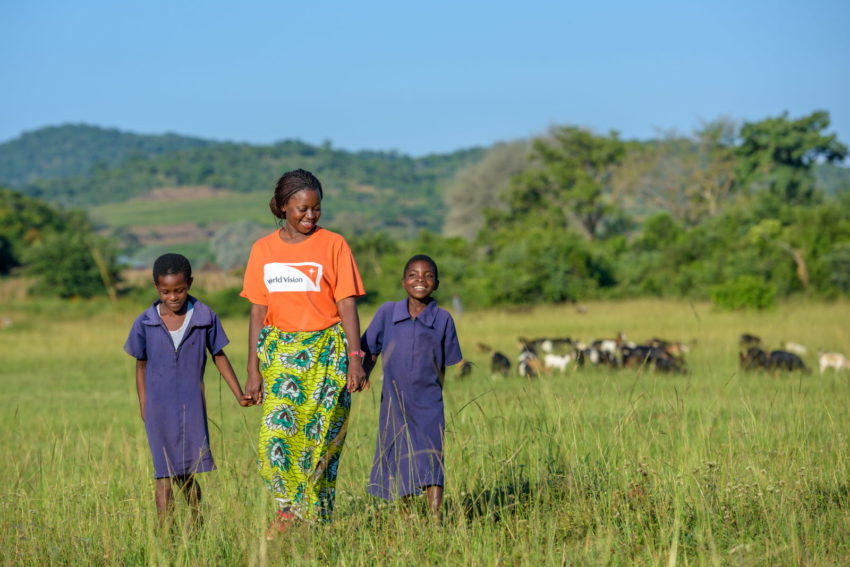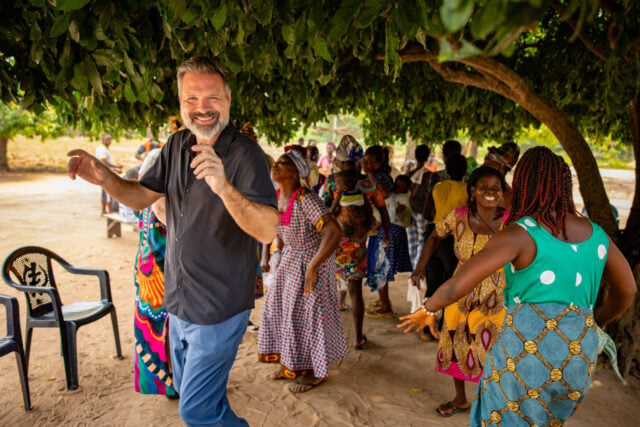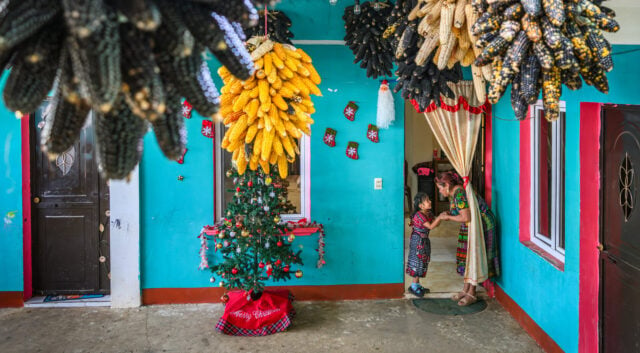Rosemary, now 10 years old, lives in Moyo, Zambia. She harbors an unusual dream for a child from rural Zambia: She wants to be a chef.
“I love it because of the tea. I want to be drinking tea,” she says, explaining the allure of her dream career in the kitchen. She imagines that’s what chefs do—drink tea, wash dishes, and serve people. “The other thing is because I love cooking for other people.”
Generational poverty
Rosemary’s grandparents, Patricia and Danford came from poor families. “We hoped through hard work to transform our children’s lives, but things never worked out as we thought,” says Patricia.
Rosemary’s father, Justine, saw poverty derail his future. As his hunger grew, he avoided school. “It was hard to even think of going to school when your stomach is empty,” he says. Justine dropped out of school after sixth grade.
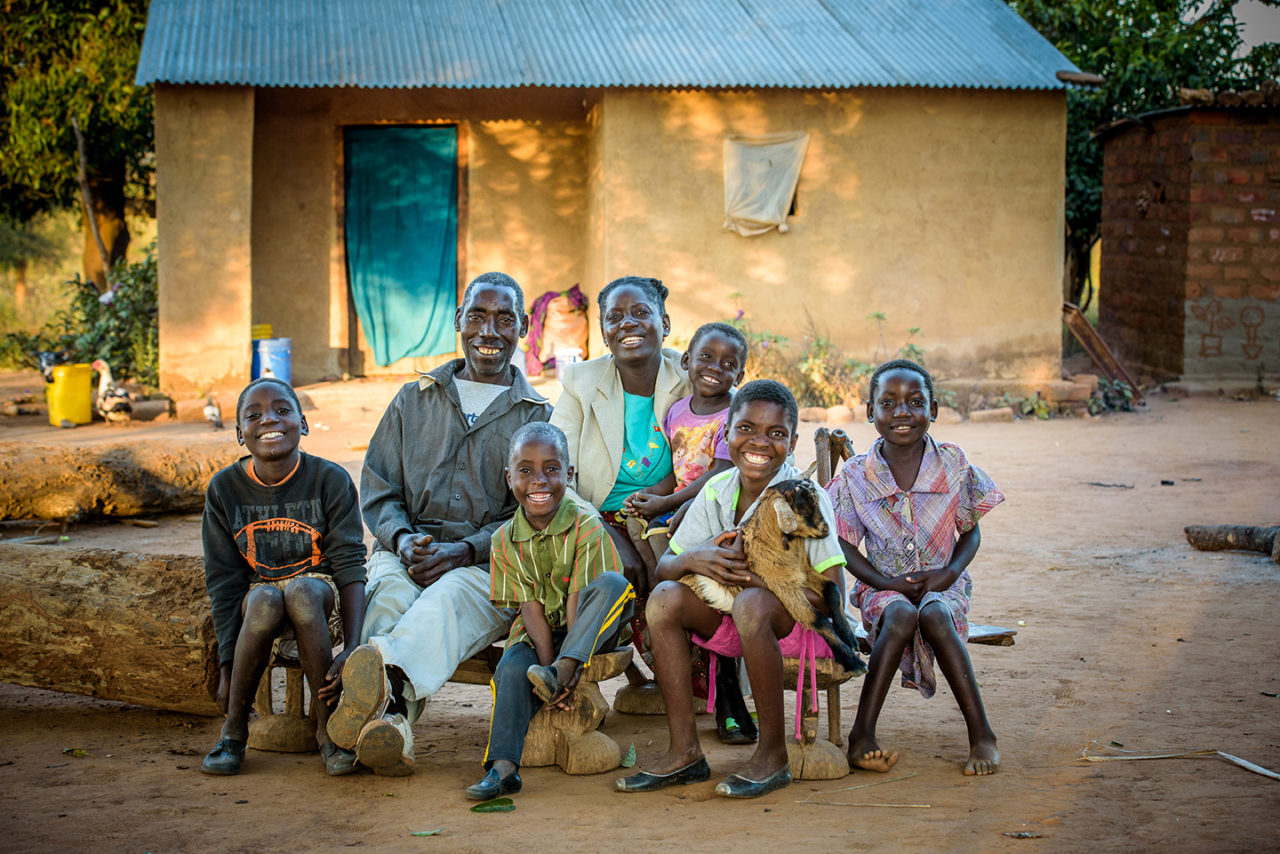
(©2017 World Vision/photo by Jon Warren)
The family seemed destined to continue along the path of generational poverty, but in 2011, World Vision came to Moyo. The community helped World Vision identify families who faced the greatest need. Danford and Patricia’s family were chosen to receive goats. The changes started quickly for their family.
Right away, Rosemary, who was only a little girl when the goats arrived, benefited from drinking goat’s milk, which provided nutritional support so she could be healthy, not hungry.
Rosemary loves to mix goat’s milk with maize to make porridge—and it’s helping her grow up healthy and strong so she can go to school. As she grows, the number of goats will also grow, so there will be plenty to support her educational needs.
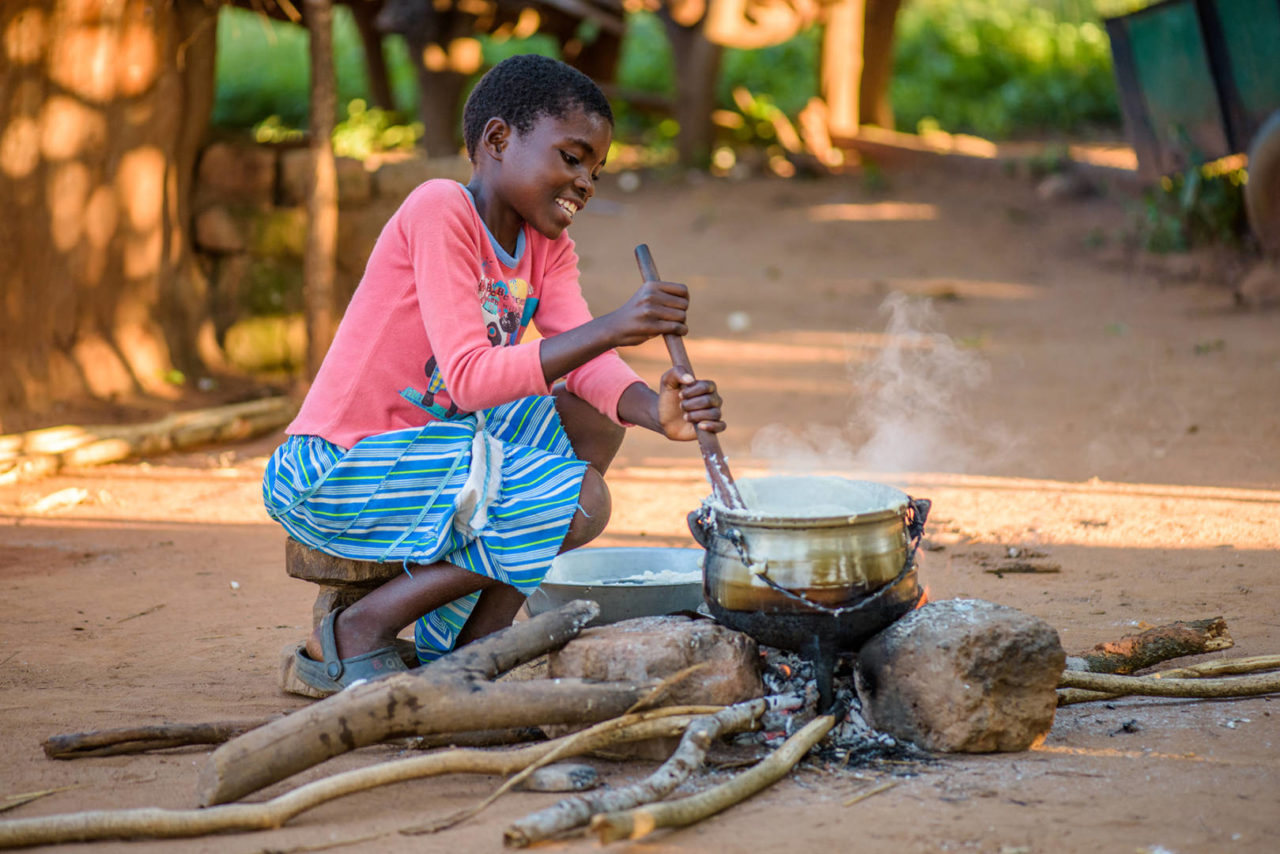
A different life for Rosemary
Soon after the first goat delivery, World Vision began child sponsorship in Moyo in 2012. Rosemary’s aunt, Loveness, was sponsored that year, and Rosemary was sponsored in 2014.
World Vision sponsorship benefits children by helping families lift the whole community out of poverty. “World Vision has brought a lot of change in our community,” says Danford.
World Vision staff partnered with community leaders to determine how to best meet people’s needs. Combined with the effects the goats had on individual families, sponsorship has greatly improved life in Moyo.
“I used to spend much of the day getting water,” says Patricia. Now, mechanized boreholes powered by solar panels pump water to multiple taps in the village—Patricia and Danford have one just a few steps from their front door. Rosemary won’t ever have to walk those long distances to collect water, and she’s growing up healthier because she has clean water readily available.
“Our children and grandchildren are now able to dream more and more because there is a lot of hope in what World Vision has done for us,” says Danford.
Rosemary doesn’t hear her stomach grumbling like her father did. She’s one of the top students in her class and especially enjoys science and math. And after classes, she still has energy left over for a game of netball and time on the teeter-totter with Tassy, one of her closest friends.
Meet Tassy’s family
Tassy’s grandparents, Nelson and Jerecy, discovered they were HIV positive in 2006. They had raised Tassy since she was a baby.
There were times when Tassy came to Jerecy and said, “I need some food. I am hungry.” But they had nothing to feed her. When this happened Jerecy would go to the neighbor and ask for a bit of porridge to feed her granddaughter.
The little money they had went to food and their transportation to the clinic to get their anti-retroviral medication. The family couldn’t even afford to buy soap to wash their clothes.
Another thing that kept them in poverty was their lack of animals. But Princess Kasamba Moyo, the chief’s daughter, saw the family’s struggles.
When World Vision came to their community in 2010, Princess Moyo went to work for the organization as a community development worker. She and other World Vision staff identified some of the most vulnerable families — including Tassy’s family.
Princess Moyo says, “World Vision came and educated them and encouraged them that even though they were HIV positive, it wasn’t the end of their life.”
Through a support group, Nelson received five buckets of vegetable seeds, which provided enough for a very big garden. At last the family had enough food to feed themselves, plus extra that they were able to sell.
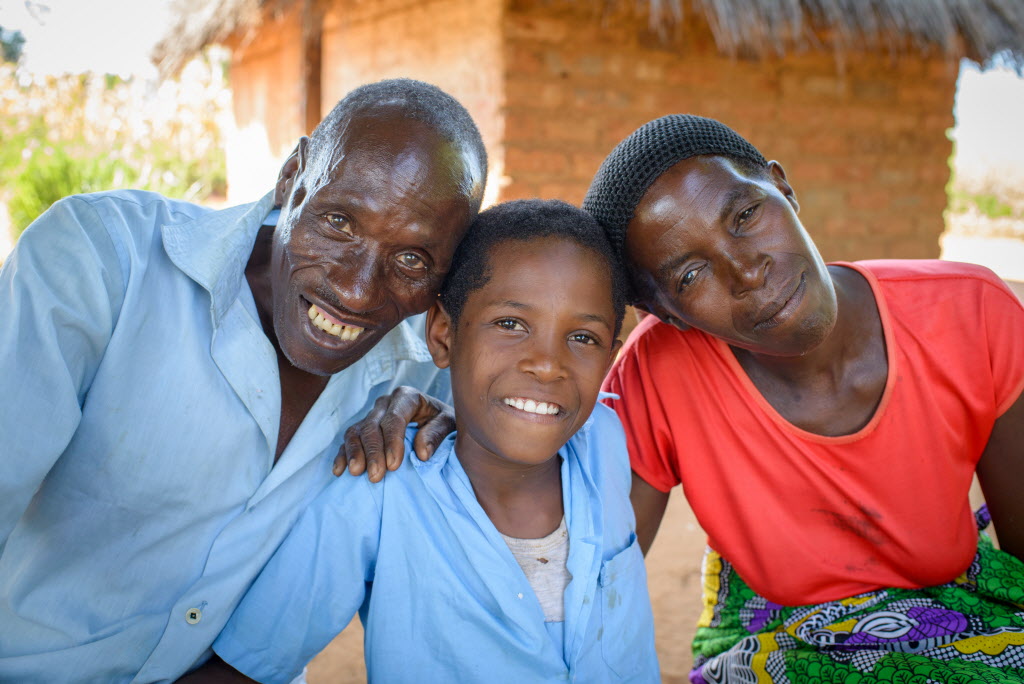 Two years ago, Tassy was sponsored through World Vision. Her sponsor sent extra gifts that enabled her to buy a mattress and blankets.
Two years ago, Tassy was sponsored through World Vision. Her sponsor sent extra gifts that enabled her to buy a mattress and blankets.
Sponsors’ monthly contributions have transformed Moyo. Solar-powered mechanized boreholes now bring clean water to a nearby tap. Before, Jerecy traveled two hours to get water for the family.
Nine-year-old Tassy ranks number two in her fourth-grade class. She’s smart and Nelson encourages her to dream of being a doctor. She smiles shyly at her grandfather’s words before agreeing she also thinks she could be a doctor.
She wants to work in Lusaka, but then would like to return to Moyo. “I would come back to help this community because this is my home village,” she says.
A clinic in the community is also being converted to a hospital. Now Jerecy and Nelson won’t have to pay for transportation costs to get their medication.
World Vision partnered with the Zambian government to make sure families in Moyo had mosquito nets. Since then, no one in the family has gotten sick with malaria.
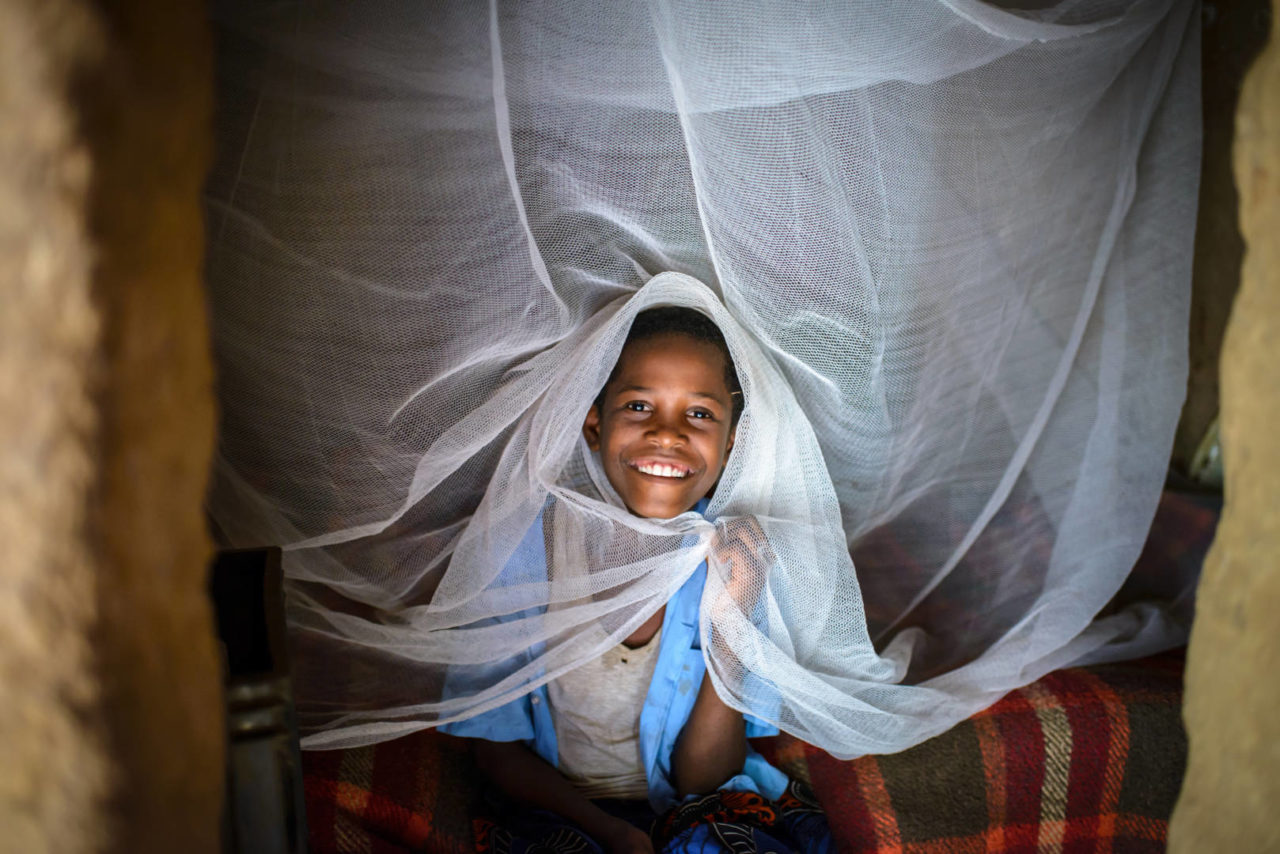
Nelson thanks donors and sponsors; “You have taken it upon yourselves to realize we are one. We may have different skin color, but we are all one created by God.”
Tassy’s sponsor sends letters of encouragement. The last one came with a package, which included a small Bible tucked inside.
Jerecy says, “May the good Lord bless the hands of those who support the work World Vision does and also bless the hands of all members of staff involved in transforming our lives.”
Become a Sponsor
When you sponsor a child, you don’t just create a meaningful connection with one special child. You also get to help a family and entire community out of poverty for good, like it’s helped Rosemary and Tassy’s families in Moyo, Zambia. It’s the most personal and effective way you can fight poverty. Sponsor a child today.
